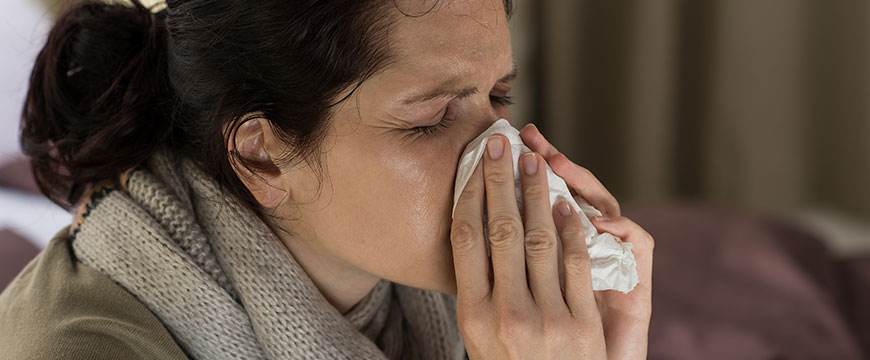
If you have sniffles and watery eyes because of seasonal allergies, you might be thinking about the pollen count, the graphics you see on the internet, and how the information helps you. People can see the daily pollen count on the news, in reports, or in the newspaper. These reports give people how much pollen is in the air. The tree pollen level, weed pollen, and grass pollen are often reported as “low”, “medium”, or “high.” On occasions, these are reports that provide more details on the kinds of trees and weed pollens present.
You might have to go see an allergy specialist before the season starts, so you can best manage it this time. Find out more about why the pollen count matters.
What Does Pollen Count Mean?
Pollen count refers to the measure of the number of pollen grains that is present in a cubic meter. It is normally recorded that day, so the pollen count forecasts will most likely reflect the daytime figures as well.
Oftentimes, they use the rotarod technique to measure the pollen grains. This involves the greased silicone rods to collect air particles, which is usually over 24 hours. Some devices can measure pollen counts over several days.
If the pollen count is 50 or less, that is low, while if it is 1,000 or more, that is high.
How Does Pollen Count Work?
It is important to understand the way pollen counts are gathered. Most of the pollen counters are positioned on top of buildings, where air samples are collected through different methods. The pollen present in the air lands on some kind of surface, like a glass microscope slide and they use petroleum jelly to coat it. A person who is trained to identify pollen uses a microscope to examine the slide, and they count the different types of pollen. Calculations will be done, which is estimates the amount of pollen in the air, according to how much pollen is collected on the slide over a certain period. Pollen level (low, medium, or high) reports are based on the pollen averages that were collected through the years.
Seeking Treatment
Even when you are trying to stay away from the outdoors when the pollen count is high, your allergies remain uncontrolled and an antihistamine only gives you temporary relief. If you want to manage your allergies better, you should contact a professional allergist for treatment and diagnosis. Allergy shots and drops are successful ways of treating and managing patients to eliminate their symptoms.
What You Must do if the Pollen Count is High
The best thing is to just stay indoors if your allergies are severe and the pollen count outside is high. If you have to be outside, you must follow these steps:
- If you have to be outside, wear an allergy mask
- You should keep the windows closed inside your home and car
- Run the air conditioning in your car and home
- After you come from outdoors, take a shower and change your clothes right away. You should shampoo your hair and wash off all the pollen
- Wipe off your pets if they came from outdoors. They might carry pollen on their fur
- Wear a hat and sunglasses to make sure pollen stays out of your hair and eyes
Time of Day Matters
Normally, the pollen count in the morning is high and it peaks by early afternoon or midday. After that, the pollen count will gradually fall. That means pollen count is normally low before dawn, late afternoon, or early evening.
Contact allergy center Manassas VA if you need to consult.







